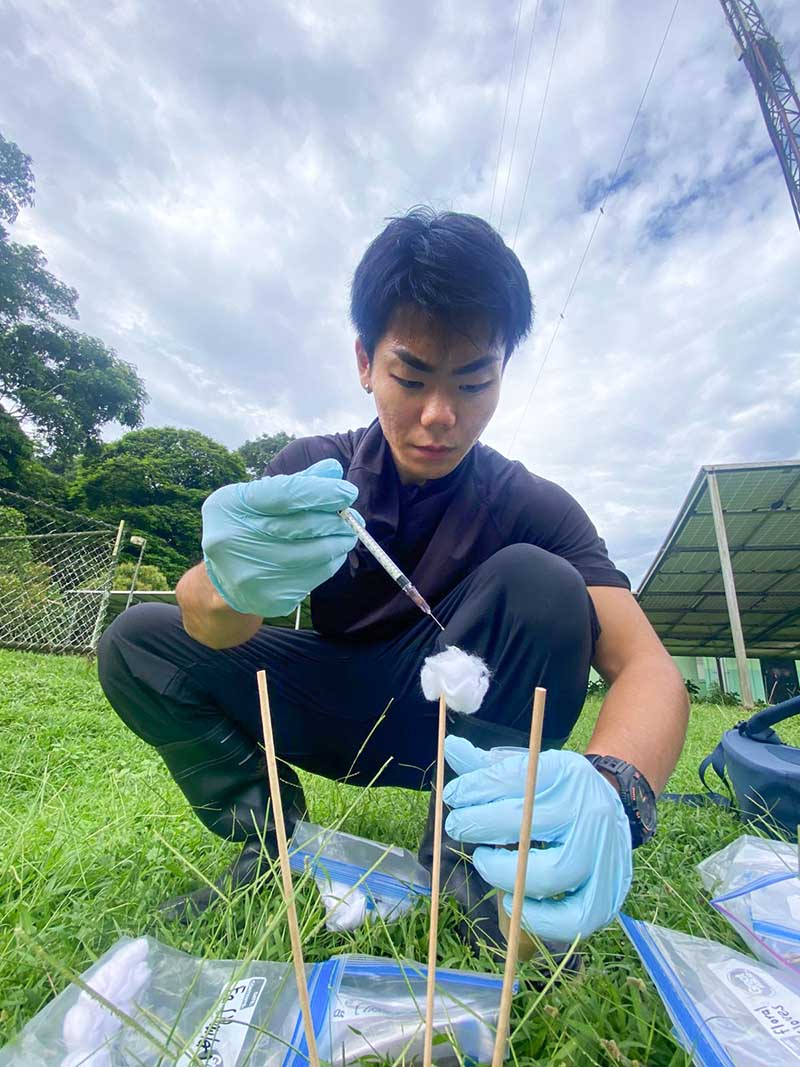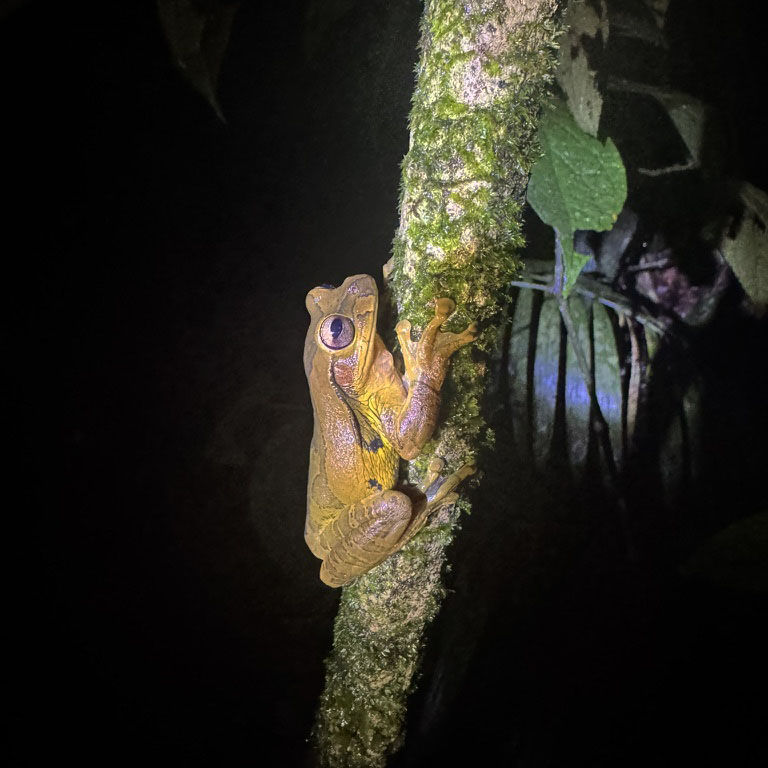Bio majors gain 'eye-opening' tropical research experience over semester abroad in Costa Rica
Bio majors gain 'eye-opening' tropical research experience over semester abroad in Costa Rica
Bio majors gain 'eye-opening' tropical research experience over semester abroad in Costa Rica
11/26/2025
University of Guam biology students William Kazuki Minami and Jose Enrique Simpson returned this week from an intensive semester-long immersion in tropical science through the USDA-funded NextGen COMPASS Program, spending Aug. 22 to Nov. 29 studying in Costa Rica’s renowned ecosystems.

The students participated in Tropical Biology in a Changing Planet, a rigorous field-based program hosted by the Organization for Tropical Studies (OTS). OTS, a global leader in tropical research and experiential learning, operates three major research stations — La Selva, Palo Verde, and Las Cruces — where Minami and Simpson lived, studied, and conducted fieldwork alongside a cohort of international students.
Immersed in biodiversity and field science
The program offered a demanding blend of classroom instruction, field research, and hands-on scientific training. Students practiced ecological data collection, species identification, and experimental design while collaborating with peers from around the world. Their coursework modules included:
- Fundamentals of Tropical Biology
- Field Research in Tropical Biology
- Conservation Action in the Tropics
- Culture and Language in Costa Rica
All students concluded the semester by developing and presenting a capstone field research project, gaining experience in professional scientific communication.
For Minami, the experience delivered unforgettable encounters with wildlife and meaningful preparation for his future scientific career.
“OTS was a once-in-a-lifetime opportunity that gave me hands-on research experience in the conservation capital of the world,” Minami said. “[…] Unforgettable moments include seeing spider monkeys five minutes into a hike, watching a sloth with its baby cross a bridge with me, capuchin monkeys interrupting our GIS class, and holding a beautiful sergeant bird. […] I hope to bring back what I learned to Guam and give back to UOG, the same way COMPASS has provided me with this opportunity.”
Cultural immersion and language learning
|
What has been incredibly eye-opening for me is how Costa Rica treats nature. They
have deep respect for the natural world, reflected in their legislature as well. |
Beyond field science, the program emphasized cultural understanding. Students received Spanish instruction tailored to their language level, enabling deeper engagement with Costa Rican communities and facilitating fieldwork across diverse ecological settings.
Simpson said the cultural and environmental perspectives he encountered shaped not only his scientific interests, but also his sense of community responsibility.
“What has been incredibly eye-opening for me is how Costa Rica treats nature,” he said. "They have deep respect for the natural world, reflected in their legislature as well. The number of people who allow part of their land to be used for biological corridors and leave it as jungle is astounding and necessary for Costa Rica to be so diverse. […] This has motivated me to become more active in community events and more politically informed to preserve and restore Guam’s natural environments.”
Throughout the semester, Minami and Simpson engaged in a wide range of field projects —from invasive species removal to mapping endangered trees to studying poison dart frog behavior. These experiences deepened their understanding of tropical ecosystems and connected them with scientists and graduate mentors from institutions worldwide.
Preparing the next generation of tropical scientists
The program aims to train future conservation leaders capable of addressing urgent environmental issues in the tropics and beyond. For Minami and Simpson, the semester in Costa Rica was a defining step toward graduate studies and careers in ecology, conservation, and environmental advocacy.



Want to spend a semester in Costa Rica?
The Tropical Biology on a Changing Planet program is accepting applications for Fall 2026 until April 1, 2026. Interested students should reach out the NextGen COMPASS advisors to inquire: kmoots@triton.uog.edu and rachel.jolley@triton.uog.edu.
NextGen COMPASS is a U.S. Department of Agriculture NIFA NextGen grant program awarded to the University of Guam College of Natural & Applied Sciences in 2023. Through 2028, the program will be working to expand the educational and employment opportunities for students in the Mariana Islands in the subject areas of food, agriculture, natural resources, and human sciences.



